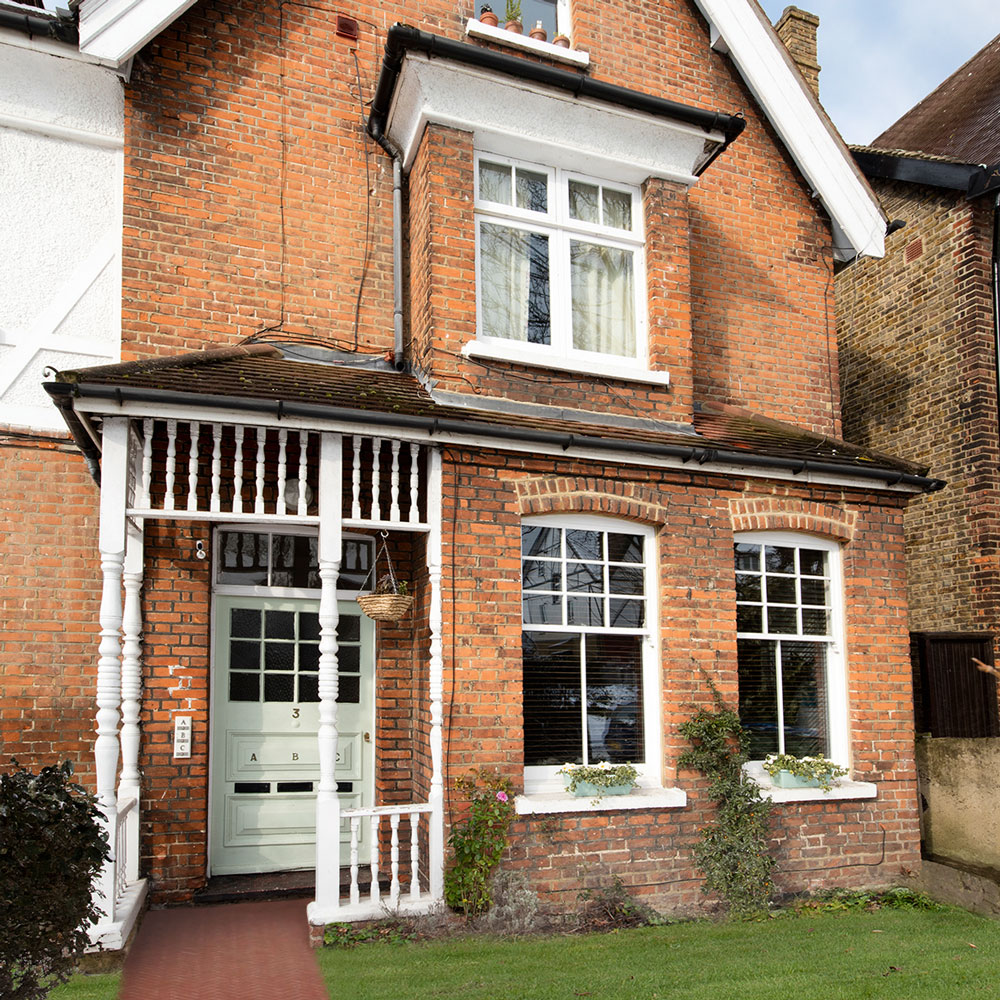Bad credit mortgages: what are your options?
If you’ve struggled with money in the past, borrowing can be tricky; find out how a bad credit mortgage could help you buy your own home
Sign up to our newsletter for style inspiration, real homes, project and garden advice and shopping know-how
You are now subscribed
Your newsletter sign-up was successful
Whether you’ve missed a few credit card repayments or have suffered more serious debt problems, a bad credit mortgage could provide the key to your home buying problems.
When you apply for a mortgage, lenders will want to be confident that you will be able to repay your loan. In order to help them make an informed decision they’ll run a credit check on you that shows how well you’ve managed your money in the past.
In addition to details that confirm your identity, your credit report will show how much money you owe and whether you have ever missed or made late payments. This information is then used to give you a credit score.
If you have a good credit score lenders will welcome you with open arms, but if you have a low score you might struggle to borrow money. This can apply whether you’re buying a new home, or simply trying to move onto a better mortgage rate.
Can I get a mortgage if I have bad credit?
While getting a mortgage or remortgage, with bad credit might be difficult, it isn’t impossible. Just how tricky it is will depend on how low your credit score is and the lenders you approach.
Nick Mendes, mortgage technical manager at John Charcol says that while many of the big-name lenders might reject your application if you have bad credit, specialist lenders may be more pragmatic.
'There are some non-high street lenders who may be able to take a different view and look towards understanding your circumstances. This will include how your debts built up, and how this has changed moving forward.'
Sign up to our newsletter for style inspiration, real homes, project and garden advice and shopping know-how
These lenders are likely to be less reliant on credit scores and will underwrite your application manually to ensure they have a full and proper understanding of your financial situation. 'For borrowers that have failed a credit score, or don’t fit the traditional high street lenders’ profile, these specialist lenders are often prepared to think outside the box,' he adds.

What counts as bad credit?
There are a number of reasons why you might have bad credit. This could range from something relatively minor like missed credit card or loan repayments a few years ago, to more serious debt problems. You may have incurred a County Court Judgment (CCJ) or entered into an individual voluntary arrangement (IVA) for example.
As a guide, Mendes says specialist lenders can usually accommodate borrowers with up to four missed mortgage payments, as long as the missed payments are between 12-24 months old. Smaller CCJs (typically below £300) may be disregarded, even if they’ve been within the last six months.
'Specialist lenders may even allow debt management plans to remain, as long as the borrower has kept up to date with repayments,' he explains.
Typically, the more time that has passed since the issue arose, the less problematic it will be. Information held on your credit report lasts for six years.
Jones adds: 'While no two lenders are the same in terms of their lending criteria and approach to credit scoring, there are common factors that many lenders agree on, including information that will raise instant alarm bells.'
In addition to missed or defaulted payments, the amount of debt a borrower has can be a red flag for lenders.
'Most lenders will look unfavourably upon customers who are already heavily indebted – for example, maxed out on a string of credit cards – as well as those who have sought credit in the weeks and months prior to the mortgage application. Borrowing money to raise funds for your mortgage deposit is widely frowned upon.'
Will I pay more for a bad credit mortgage?
The catch is that borrowers with bad credit will be regarded as a riskier proposition, even by specialist lenders, and that means interest rates on bad credit mortgages will be higher.
You may find that you need to put down a bigger deposit too. According to John Charcol, borrowers with a good credit history can borrow up to 95% of a property’s value. But if you’ve got bad credit you may well be limited to 85%.
What is the minimum credit score for a bad credit mortgage?
Unfortunately there’s no magic number on your credit score that will determine whether or not you are able to get a mortgage.
James Jones, head of consumer affairs at credit referencing agency Experian, says lenders each will interpret credit scores differently and they’ll be taken into account alongside a range of factors.
'Mortgage lenders will put your financial behaviour under the microscope, especially in the months leading up to the mortgage application. They will be looking to establish two main things: your financial reliability and, given the significant value of the loan you’re asking for, your ability to meet future mortgage payments based on your income and spending,' he explains.
However, while your credit score itself may not tell you whether or not you can get a mortgage, specific details within your credit report may give you an indication of how lenders will respond.

Should I take out a mortgage if I have bad credit?
Working out whether or not you should take out a mortgage with bad credit can be a tough decision.
If you’re remortgaging, and are still able to reduce your borrowing costs, then it’s likely to make sense. However, if you are buying a new home there’s more to consider.
You need to think carefully about whether your finances are secure enough for you to be taking on such a big financial commitment. You should also consider whether you might be better off focusing on saving and improving your credit score. With a better credit record and a larger deposit you’ll have a much wider choice of lenders. Meaning you'll be able to get a more competitive mortgage.
For many people, a more expensive mortgage will be a price worth paying to get the home they want, or quite possibly, need.
If you do decide to proceed it’s worth talking to a good independent mortgage broker, who will be able to recommend the lenders that are most likely to accept your application.
Mendes adds: 'If you have any forms of credit impairment, be this missed payments, defaults, CCJs, IVAs and so on, finding a lender for a remortgage or purchase can feel like a lost cause. It’s important not to lose hope. Speaking with the right broker will help navigate between lenders to ensure you get the right deal.'
Tips for improving your credit score and getting the best possible deal:
- Make sure you are on the electoral roll – it will boost your credit score
- Check your credit record for any inaccuracies and get mistakes corrected
- Request any outdated links to other people (such as former partners) to be removed
- If you’re renting, take advantage of services such as Canopy or Credit Ladder. These enable your rent payments to be included in your credit report
- Try and reduce any existing borrowing as much as you can
- Manage your finances as carefully as you can in the months before applying. Make all bill and debt repayments on time, avoid overspending and try not to go overdrawn
- Talk to a mortgage broker before you apply for a mortgage. Any rejected applications will leave a black mark on your credit record.